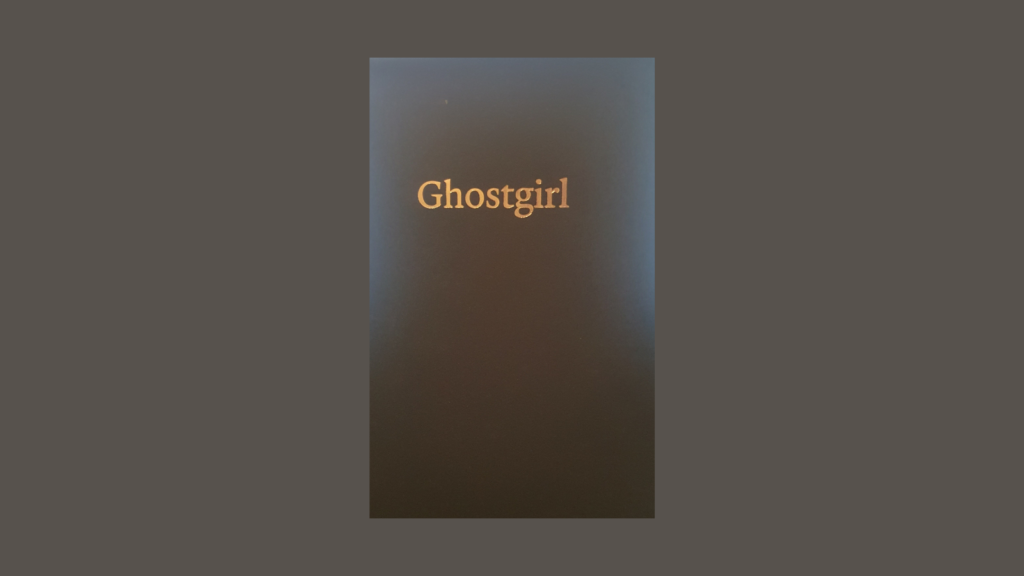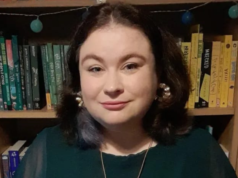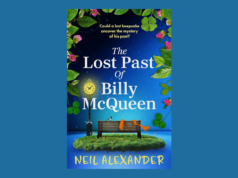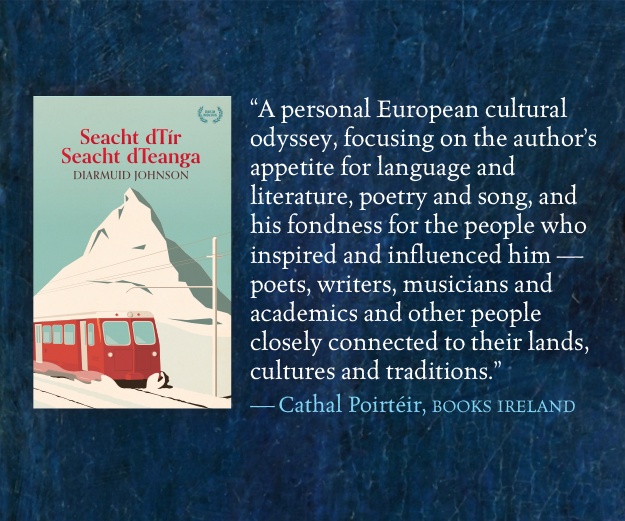
A living artefact that records a very real present—Ghostgirl, by Annemarie Ní Churreáin
by Aoife Lyall
Ellen Orchard’s essay, ‘How Can a Poem Bear Witness?’, acknowledges the significant and complex position of the poet when it comes to writing about atrocities that are known to them but not experienced by them first-hand. Recently published in Poetry Ireland Review (143), Orchard succinctly sums up the dilemma when she writes:
“…contemporary poets must consider if their poetry that speaks for marginalised people is actually speaking over them.”
Ní Churreáin does neither. Instead, in Ghostgirl, she speaks through these people, presenting information from the seminal, and aggressively titled, Final Report of the Commission of Investigation into Mother and Baby Homes (2021) on the left page, and the poem she has drawn from it on the right.
In doing so, Ní Churreáin is making a clear distinction between the voices of those involved, and her engagement with those voices. As such, her poems do not stand in for, or over, but rather alongside these records: amplification without obfuscation, advocacy without anonymity.
her poems do not stand in for, or over, but rather alongside these records: amplification without obfuscation, advocacy without anonymity
The Final in the report title (which is available, in full, to read online) rings out as an attempt to silence, or rather quell, future investigations and interrogations of its contents. Throughout Ghostgirl Ní Churreáin refuses to be placated; her poetic responses to sections of the report consistently emphasise the questions that still need to be asked, the answers that still need to be given, and the conversations that still need to be had.
‘Keen for a Boarded-Out Child’ is prefaced by the information that the women who could not afford to care for their children would have to give them to the local authority, who would in turn rent them out to local homes or farms. This report does not tell us what happened beyond this point, or detail the experiences endured by those children. Ní Churreáin highlights “What the archives do not record: / the scent of rat. Fat, tailed, scurrilous” but, like the Report, the poem stops abruptly, and we learn nothing more of the mother or child.
The irregular empty spaces that surround the reports, statistics, and quotes throughout, speak to just how much we still do not know
By doing this, Ní Churreáin demonstrates that if we are to expect justice, we must unlearn the indoctrination of utter acceptance and reverence of authority figures that defined our youth. We must stop accepting their rules and explanations as indelible mandates, or honest efforts to uncover truths. The irregular empty spaces that surround the reports, statistics, and quotes throughout, speak to just how much we still do not know.
It wasn’t just the Homes that were the problem, but the country’s entire socio-religious and economic culture:
“…the baby died but I never got to see where it was buried. That was me. I could go free, but I would not go home because I was treated so badly there, so I was kept on as a staff member in the home.” Fran
These women never stood a chance: everyone was in on it. Everybody had something to save, like their reputation – as in ‘How to Enter a Home for Unmarried Mothers in 15 Easy Dance Steps’ – or something to gain as in ‘Bull’. There is some compassion here, from the lay people involved, within the brutal reality of the bigger picture, as in ‘The Handywoman Tends to a Sickly Child’: “You are here now, safe as a stone… There, there. The cure of breath is given” —but never does this overshadow the rage that such circumstances were allowed to exist in the first place.
Sardonic anger fuels ‘Self-Portrait as a Fallen Girl’, ‘The Evil Eye Upon Your Absent Father’ and ‘The Home for Unmarried Fathers’:
and each Sunday a sermon to shame
the living daylights out of them, shawled
and kneeling, hands drawn together
[…]
The home sketched up,
was never built, and the bunks where men
might lie awake at night, silent as candles,
never installed. Because who would
wish that penance on any man?
Acknowledgements are most often a litany of thanks and gratitude for the support given to the poet in the reading, writing, and publication of their work. Not here. While Ní Churreáin highlights individuals and organisations that did offer their support, she also shines the spotlight on those who offered only their insidious silence:
“Despite several requests to TULSA Child and Family Agency in Donegal in relation to the Stranorlar County Home Admission Records, no assistance or information was provided.”
Ghostgirl, therefore, must be understood, not as a reimagining of the past, but a living artefact that records a very real present, where people in the 2020’s are still denying, excusing and justifying the Church/State-sanctioned murder, manslaughter and abuse of thousands of women and their born and unborn children. A present still choking on stigma and silence, where records are hidden, burned, redacted. That still believes the nuns and priests involved were doing good, living by the rules of a God who befriended prostitutes, saved adulterers, raised taxmen from the dead, even as they crucified their own people and called it charity.
This was never about charity. It was, and is, about control. These women and children of Ireland? They would have been safer on a sinking boat.

Aoife Lyall’s poetry collection Mother, Nature (Bloodaxe Books 2021) has been described as ‘crucial’, ‘daring’, ‘heart-rending’ and ‘staggeringly tender’.











